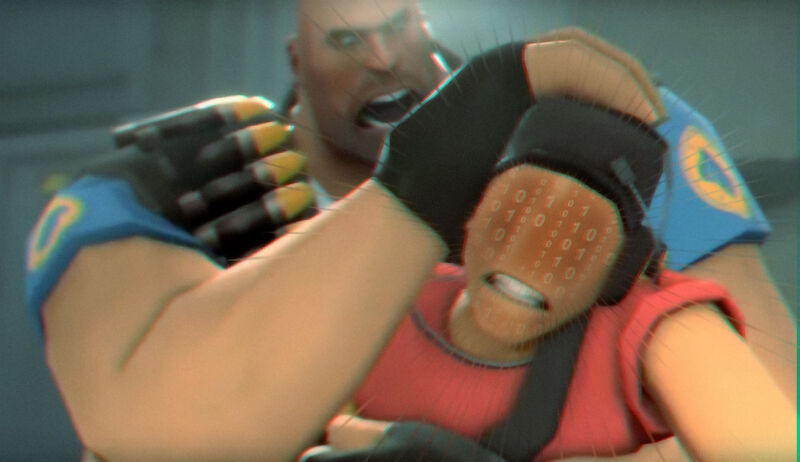
Aurich Lawson | Valve
From Black Mesa to the recently launched Portal: Revolution, Valve has had a reputation for being pretty willing to let modders run wild with new creations based on its popular games. Recently, though, a series of legal threats and takedowns of Valve-related fan projects have some worried that the Half-Life maker is going the way of Nintendo in stringently enforcing its IP rights against projects and mods that it sees as infringing.
While there are differences between the situations leading to three recent fan project takedowns, there are also some similarities that hint at the specific types of fan projects that are drawing Valve’s legal attention these days.
What’s happened so far?
Valve’s recent efforts started last week, when the company sent a DMCA takedown request to Amper Software, a team of volunteers looking to remake the aging Team Fortress 2 in Valve’s more modern Source 2 engine. The DMCA notice, as posted to Amper’s GitHub, focuses on the team’s use of “TF2 assets [that] have been ported to Source 2 without permission” and the “unauthorized porting and redistributing of Valve’s assets without a license, [which] violates Valve’s IP.”
S&box YouTuber Eridium discusses the Team Fortress 2 Source 2 port takedown.
In subsequent social media posts, the Amper team said they confirmed the DMCA request was genuine and said it was “the nail in the coffin” for a project that was already in trouble. The remake’s problems began back in September, when Facepunch’s S&box (Sandbox) platform (which Amper was using to build its TF2 Source 2 port) announced an upcoming “major retooling” of its client/server architecture and Entity-based coding environment.
At the time, the Amper team reacted to those changes by saying they were “holding off our efforts until s&box’s future gets clearer and more stable… For us at Amper Software, it may be time to explore new ideas.” That situation hadn’t changed through last week, when Amper confirmed it had already “overall moved on from” the project even before the DMCA request.
“We cannot bring it back, and we’ve hit Valve’s attention. It seems like they definitely don’t want us to use their IP (which is totally fair and legal from them),” Amper said.
Portal 64
In the days after the TF2 Source 2 takedown, another high-profile Valve fan project came to a quick halt. As we reported last week, a project to “demake” Portal for the Nintendo 64 was taken down after “communication from Valve” over concerns that the “project depends on Nintendo’s proprietary libraries.”
Portal 64 developer James Lambert talks about why he doesn’t blame Valve for the recent takedown.
The use of Nintendo’s libultra development library meant that “the project was probably doomed to be taken down from the beginning,” Portal 64 creator James Lambert said in a YouTube video posted over the weekend. “I can’t say I didn’t expect this at some point,” he continued. “I don’t blame [Valve] at all, and I don’t think you should, either. Don’t be mad at Valve here.”
While Lambert said Portal 64 might still one day be ported to an open source N64 environment like libdragon, he added that he (and Valve) probably wouldn’t want to risk even that without Nintendo’s explicit approval. “I don’t think Valve wants to explore the legal territory of what happens when one large corporation backs a project that is an unlicensed game for another large corporation’s console, even one 30 years old…”
“It makes sense that Valve would have to tell me to stop the project,” he added. “I may not be a big enough Target for Nintendo to come after, but Valve is…”

